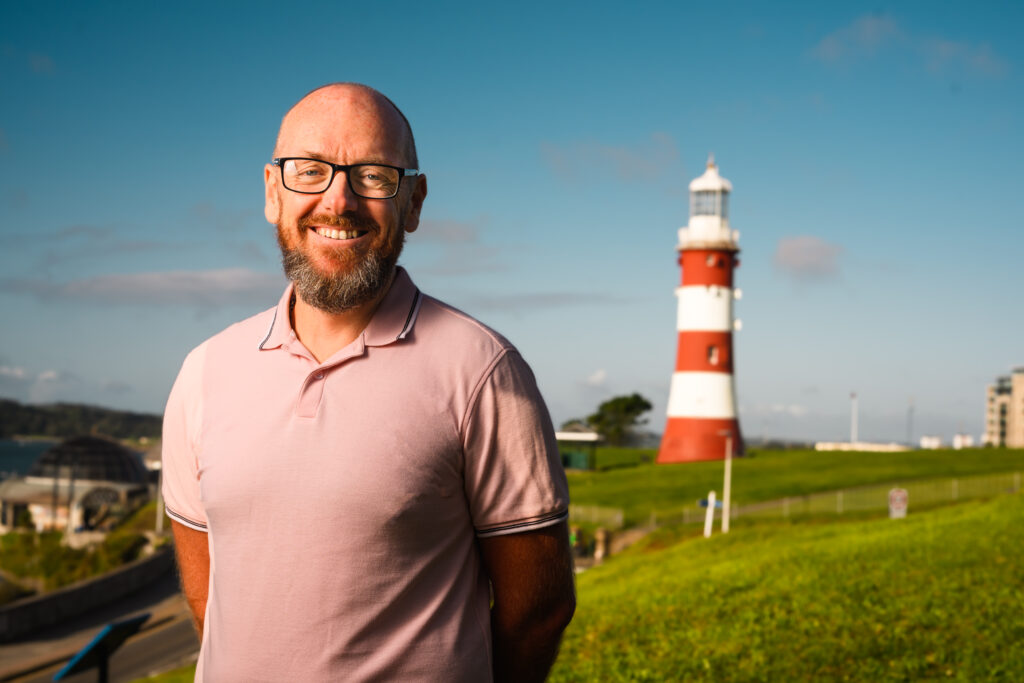Staff Spotlight: David Johns

Our Staff Spotlight highlights and celebrates the work of our team members. With a wide range of roles at the Marine Biological Association, we hope these small glimpses into the diverse expertise and individual passions will deepen the connection between the MBA and the public.

David Johns is the Head of the CPR Survey Survey, Director of Research Facilities at the Marine Biological Association (MBA) and has an external role as Chair of the Northeast Atlantic Marine Biological Analytical Quality Control Scheme.
What are the key findings from your research conducted during your time at the MBA?
I’ve worked with the Continuous Plankton Recorder (CPR) Survey for over 25 years, and in that time we have gathered an awful lot of data on what is happening with the plankton communities in the ocean. and we’ve shown how plankton can react to climate change in a number of ways. The CPR Survey relies on long term funding, and this is very difficult to obtain – a lot of my work is looking at ways we can use our data to answer current science questions around societal needs, which could include government policy areas and hot topics.
What’s your favourite marine species?
Obviously this is going to be plankton! But Calanus hyperboreus, for a number of reasons. Firstly, in the copepod world, it’s a big’un, close to 1cm long. But the really cool thing about it is that it undergoes a seasonal ‘diapause’ or hibernation, at depth – it can descend to several thousand meters at the end of the summer (which is mind-boggling considering the size of it!), when it is nice and full of fat, stay in a ‘diapause’ state until the following year, and then ascend just in time for the ‘spring bloom’ to start when it can have a nice lot of food. And it can take several years to reach maturity – descending and ascending for a number of years and progressing through it’s ‘adolescence’. If I’m restricted to one species, that’s the one!
What is your favourite part of working at the MBA?
That’s tricky, as there is no one thing! In my role it’s the variety, I can be talking to colleagues in the US about current research one minute, discussing our research vessel operations the next, chatting to governmental bodies about CPR data and policy applications and then discussing the current research being done in the Seawater Hall. As well as this, it’s a great environment to work in, I think most people are extremely ‘into’ their work, which leads to some really great conversations – the passion of everyone is palpable. And I can’t not mention the location, the view is pretty special, and it’s a pretty decent bike ride in from where I live.
I’ve been lucky enough to work here for 27 years and science and research discoveries continue to excite, intrigue and blow my mind in equal measure. Like any job, there can be tough times – seeking funding for a long term survey is not easy – but the sheer amount of amazing science being done here, and done by people who you can literally sit down and talk to most days, is a massive perk of the job. Seeing new researchers and PhD students come here and progress in their careers is incredible, they bring new energy and ideas, and the wider MBA benefits so much. But the enthusiasm is also apparent outside the science groups, throughout the MBA – I count myself very lucky to have a job I love, surrounded by such enthusiastic colleagues, in a stunning location – it’s like winning the lottery!

